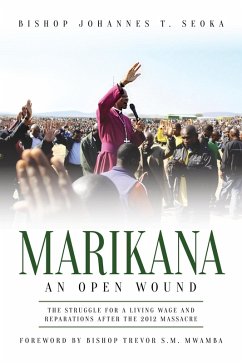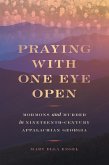Ten years after the Marikana Massacre, Bishop Seoka wrestles with the struggle for South Africa's mine workers to secure a living wage, safe working environments, and decent living conditions. In this book, he traces histories and compares the Church in South Africa against that in England, making special references to the Anglican, Methodist and Salvation Army's work among the working class.
The Marikana Massacre on 16 August 2012 shook not only South African society, but also roused those in Europe who stand in solidarity with South Africa. Suddenly, memories from South Africa's darkest chapters in apartheid history-such as the Sharpeville Massacre in 1960 and the Soweto Youth Uprising in 1976-were reawakened. Most incomprehensibly, this dramatic event was not committed by a regime of injustice, but by a democratically legitimised government. The Marikana Massacre became a watershed for South African democracy, revealing the toxic mix of state and capital. Seoka was at the massacre scene on the day the South African Police Service (SAPS) opened fire on Marikana's defenceless miners. Since 2015 he has been active globally, mobilising and advocating for compensation for the survivors and the bereaved, with particular focus on the German chemical company BASF. Marikana - An open wound: The struggle for a living wage and repatriations after the 2012 massacre, is a record of the terrible events around 16 August 2012 as experienced from Seoka's personal perspective. He pays special attention to the role of local churches that he believes left the miners in the veld "like sheep without a shepherd ... was moved by compassion for them, because they were harassed, helpless and scattered" (Matthew 9:36). The book further describes how local activists and international solidarity work can merge and create synergies to help the downtrodden fight the forces of monopoly capital and the supply chain laws.
Dieser Download kann aus rechtlichen Gründen nur mit Rechnungsadresse in A, B, CY, CZ, D, DK, EW, E, FIN, F, GR, H, IRL, I, LT, L, LR, M, NL, PL, P, R, S, SLO, SK ausgeliefert werden.









